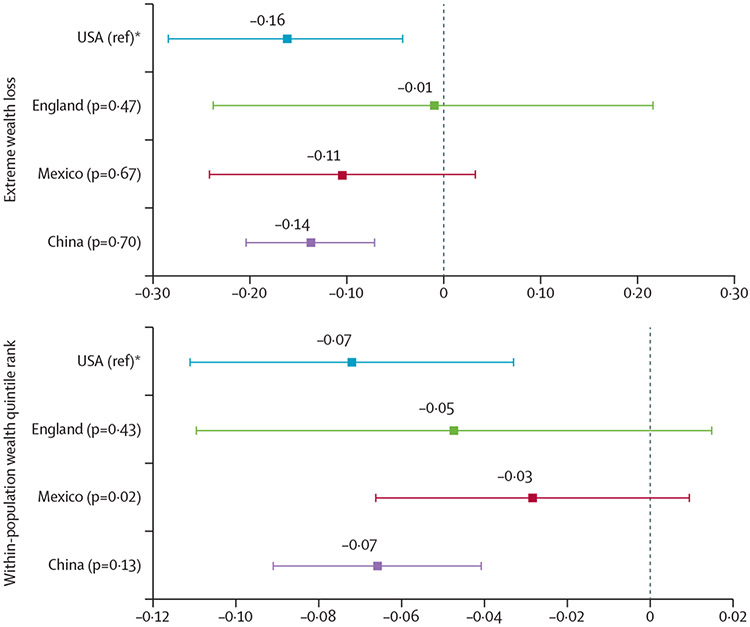Figure 2: Adjusted, weighted regression coefficients for the association between negative wealth shocks and subsequent lower level of cognitive function by country.
Estimates are from pooled models stratified by country, adjusted for age, age squared, sex or gender, marital status, minority status, household size, participant’s and parents’ education level, baseline wealth quintile, smoking status, BMI, self-reported diagnosed health conditions, self-reported general health, positive for depressive symptoms, and baseline memory score quartile, and accounted for survey sampling weights and household clusters. An extreme wealth loss is defined as a 75% or greater decline from the baseline amount of household wealth. The error bars show the 95% CIs of the point estimates, which use standard errors adjusted for household clusters, country strata, and sampling weights. *In the parentheses are p values of cross-country interaction effects, with the USA as the reference.

